Character analysis Reading Comprehension Worksheets for Ages 3-9
5 filtered results
-
From - To
Enhance your child's reading skills with engaging Character Analysis Reading Comprehension Worksheets, designed for ages 3-9. These printable resources from Kids Academy help young readers delve into stories, understanding characters' traits, motivations, and actions. Ideal for early grade teachers and parents, these worksheets promote critical thinking, empathy, and a deeper connection to the texts. Each activity encourages discussion and creative expression, making learning both fun and impactful. Foster a lifelong love for reading while building essential language skills through our expertly crafted character analysis exercises. Discover a world of literary adventures today!
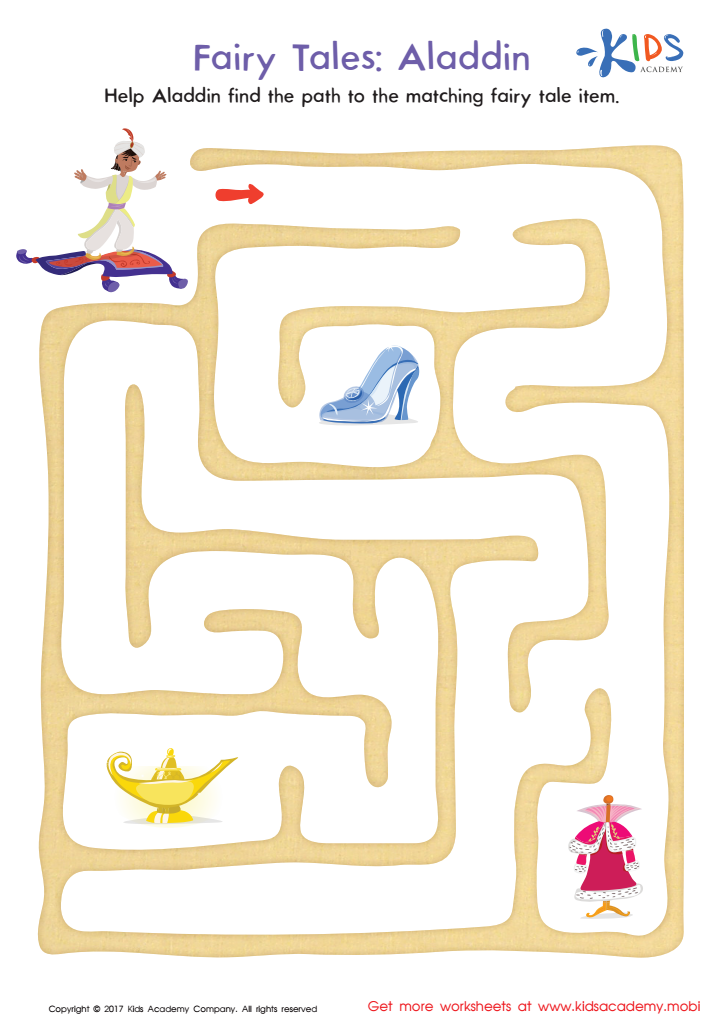

Fairy Tales Aladdin Printable
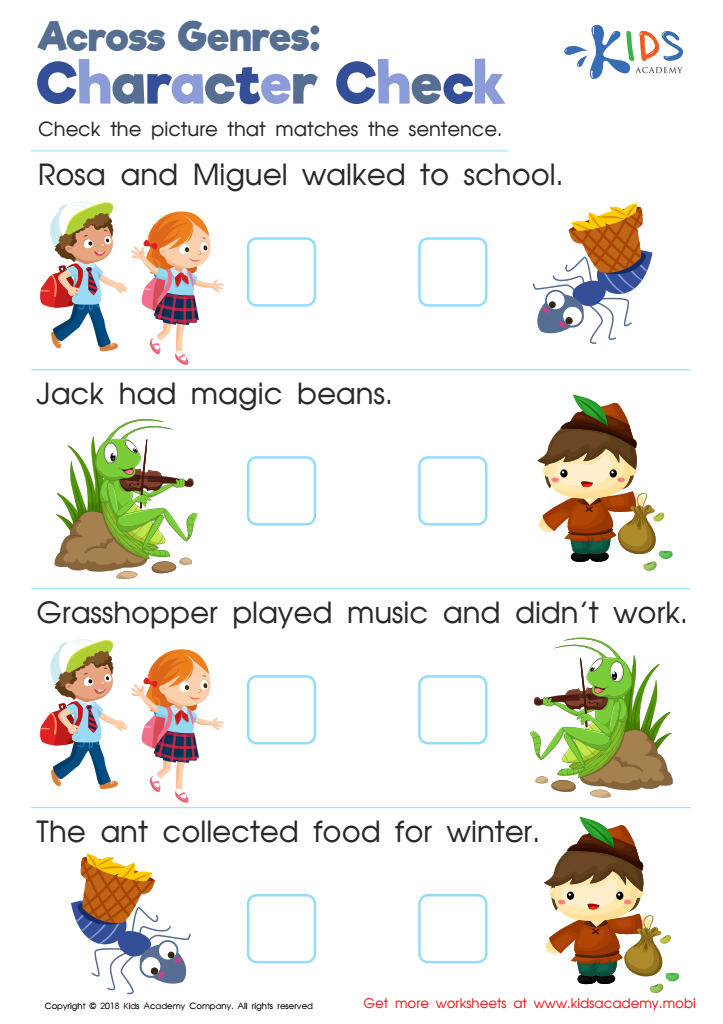

Across Genres: Character Check Worksheet
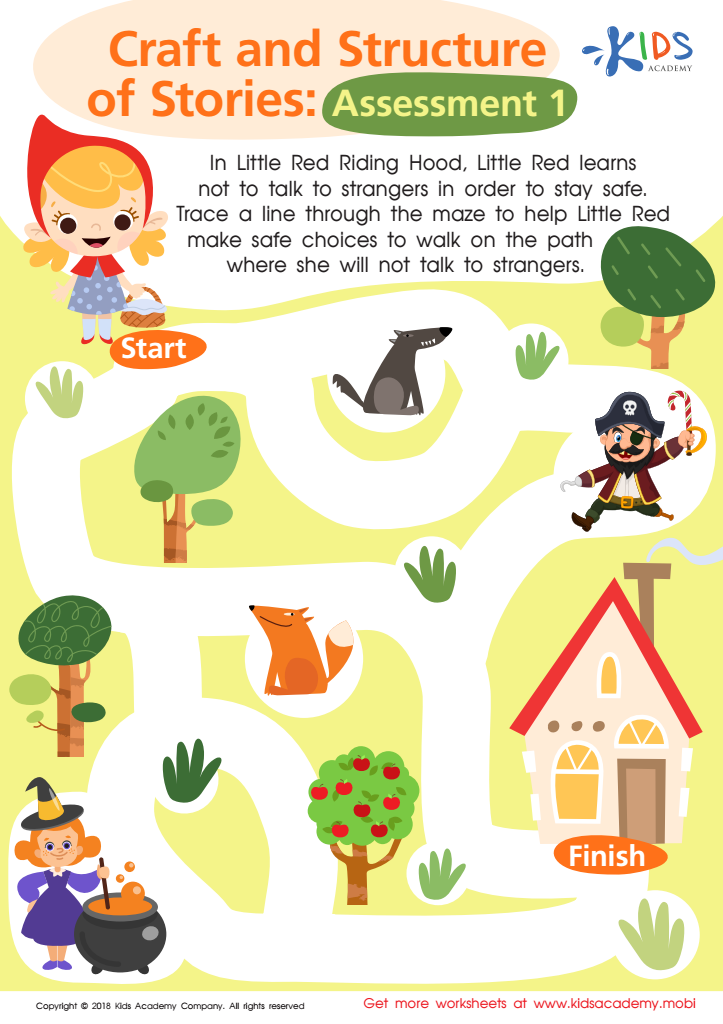

Craft and Structure of Stories: Assessment 1 Worksheet
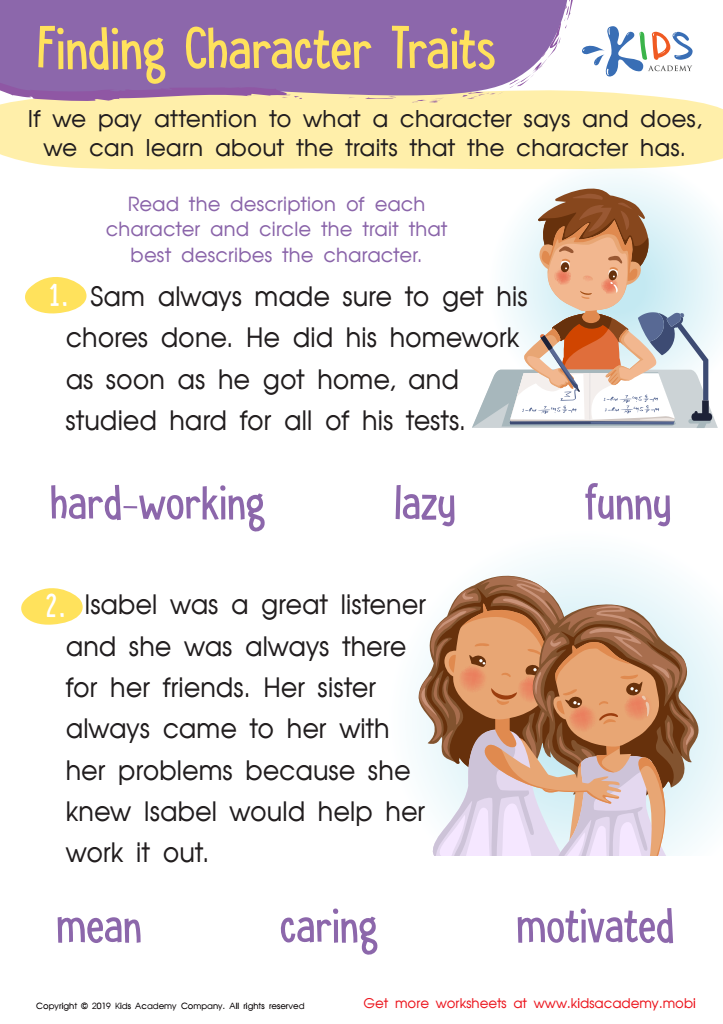

Finding Character Traits Worksheet
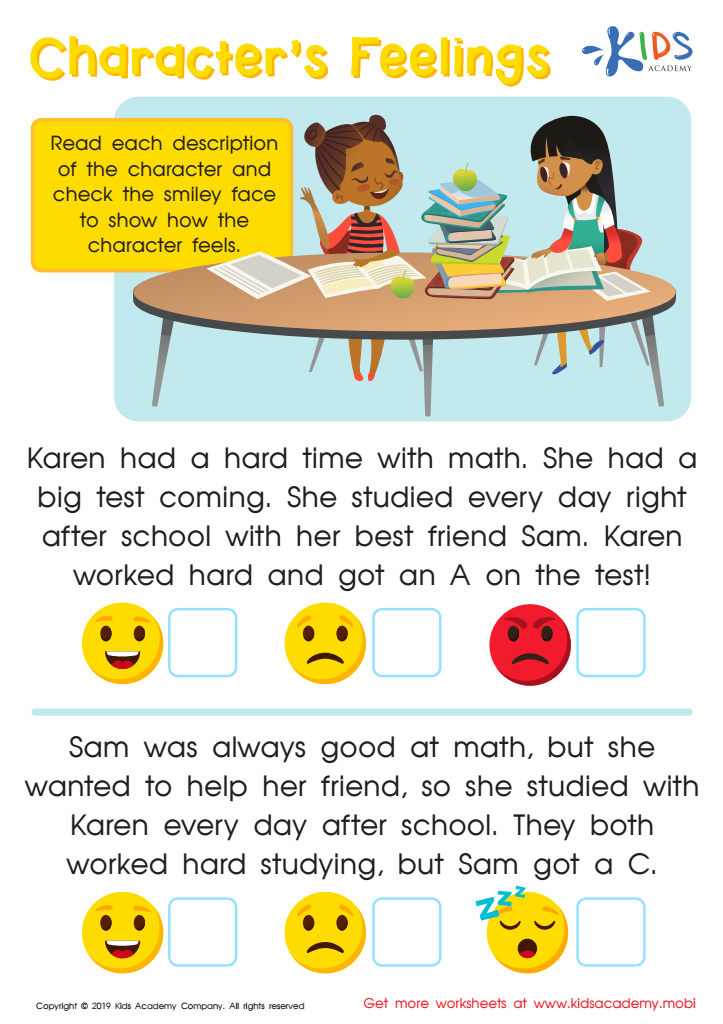

Character’s Feelings Worksheet
Character analysis in reading comprehension is crucial for young children, as it not only enhances their literacy skills but also supports their emotional and social development. Between the ages of 3-9, children are at a critical stage in developing their cognitive and empathetic abilities.
When children engage in character analysis, they learn to identify and interpret the traits, motivations, and development of characters in stories. This helps them improve their comprehension skills by understanding the plot more deeply and grasping the connections between different story elements. Additionally, it promotes critical thinking as they evaluate actions, consequences, and character growth.
From an emotional perspective, character analysis nurtures empathy by encouraging children to step into the shoes of different characters, understand diverse perspectives, and recognize a range of emotions. This practice can help children better navigate their own feelings and interactions with peers.
Socially, discussing character behaviors and decisions with peers or adults can improve communication skills and foster meaningful conversations about personal values and ethical dilemmas.
Overall, fostering these skills at an early stage equips children with essential tools for academic success and personal development, creating a strong foundation for their future learning and interactions. Therefore, parents and teachers should prioritize character analysis in their literacy activities.
 Assign to My Students
Assign to My Students





















